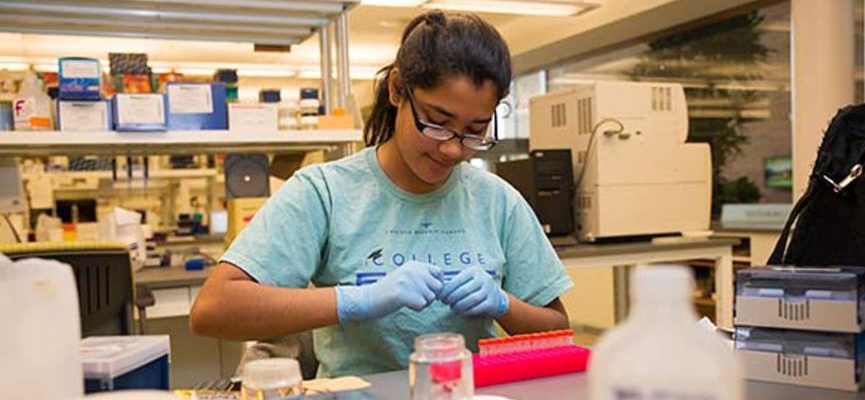NORTHBROOK, Ill. and WASHINGTON, Aug. 1, 2017 – UL and NAAEE awarded five 2017 ULIEA winners with a combined $250,000 (USD) in recognition grants for furthering environmental education via STEM principles (E-STEM).
The Chicago Botanic Garden’s Science Career Continuum took the $100,000 grand prize for their work fostering the next generation of environmental and conservation scientists. By engaging Chicago public middle and high schoolers in a summer science immersion program, Science Career Continuum paves the way to studying science in college. Participating students who go on to receive undergraduate degrees can apply for professional research initiative opportunities and can apply for internships. Students can also apply to Northwestern University, as the Garden partners with the institution to offer a Master’s and Doctorate degree in Plant Biology and Conservation.
Four additional nonprofit programs won recognition grants totaling $150,000.
Hurricane Island Center for Science and Leadership (ROCKLAND, Maine) $50,000
Hurricane Island invites local students to work with research scientists and experts to learn about ecology, marine science and citizen science initiatives. It’s completely remote and relies on environmentally sensitive technology to operate and supplement education initiatives and program demonstrations.
Design Squad Global (BOSTON) $50,000
Middle school students in the Design Squad Global community choose a challenge or activity and then partner with another group of students in another part of the world. Together, they collaborate with their engineering ideas and address global challenges.
Chicago Eco House (CHICAGO) $25,000
Chicago Eco House is an after-school program for students living in the South Side neighborhood of Englewood. The center helps youth revitalize the community and think sustainably through urban agriculture, green building, green energy, 3D printing, and carpentry projects.
Re Energy (ALBERTA, CAN.) $25,000
Re Energy engages middle and high school students in hands-on energy science activities like building wind turbines and hydroelectric generators. The curriculum and website help students grasp applied science techniques to create a more sustainable future.
WATCH AS ORGANIZERS SURPRISE WINNERS HERE.
“All of our 2017 winners understand what’s at stake,” says Cara Gizzi, UL’s Vice President of Public Safety Education and Outreach. “They’re not just thinking about short-term goals. They are actively educating and preparing today’s youth — tomorrow’s leaders — to solve the problems of our future world. It’s exciting to see students across North America receiving the tools to identify and address environmental problems with creative, STEM-based and net-positive solutions. We are so inspired and hopeful for the future.”
All five winning organizations will meet at UL’s campus in Northbrook, Ill. on Aug. 9-11 for the third ULIEA Leadership Summit to share best practices and celebrate their collective success in pushing E-STEM forward.
“While the award creators expected to find leaders in E-STEM, they were thrilled to find organizations also profoundly impacting social issues,” says Christiane Maertens, NAAEE’s Deputy Director. “These organizations are going beyond E-STEM. They’re digging deep into their communities and the world-at-large to find youth needing attention, education and direction. Many of our winners, past and present, support under-served urban, religious, indigenous, people of color, elderly and women-led populations — this is a huge goal of NAAEE. They’re giving youth a broader and more complex understanding of how environmental issues, critical thinking and STEM can meet the diverse needs of their community and we couldn’t be more proud.”
UL developed the ULIEA program in collaboration with the North American Association for Environmental Education in 2015. The program is open to nonprofit organizations in the U.S. and Canada who engage K-12 students in STEM and environmental education. Ultimately, UL and NAAEE aim to support organizations inspiring and preparing future engineers, conservationists, researchers, scientists, and problem solvers.

